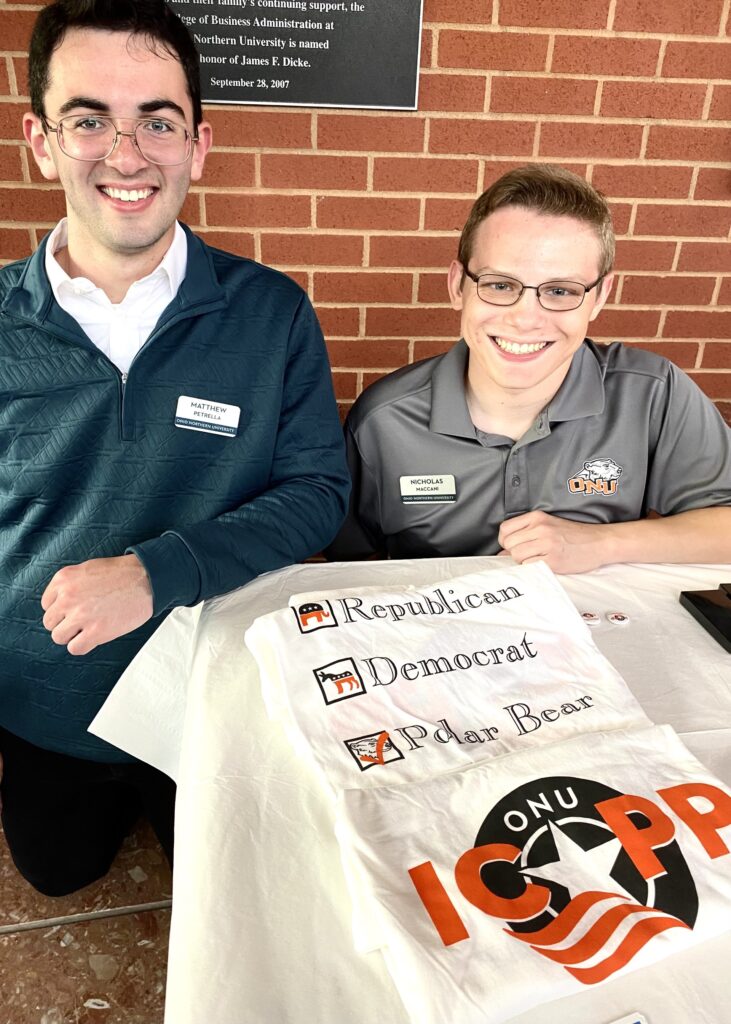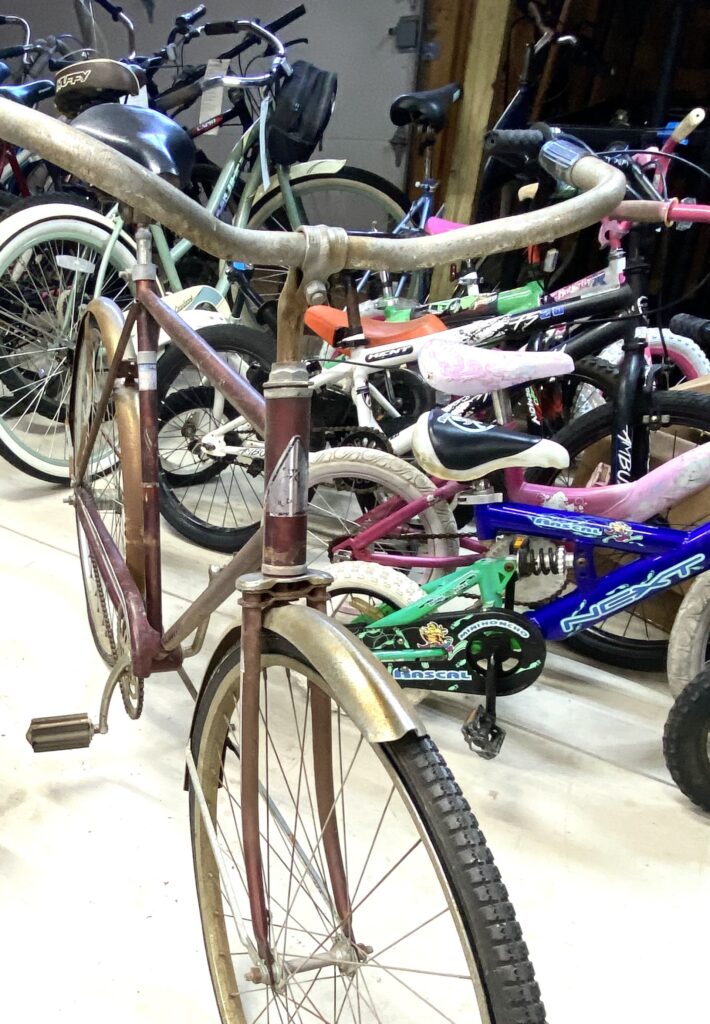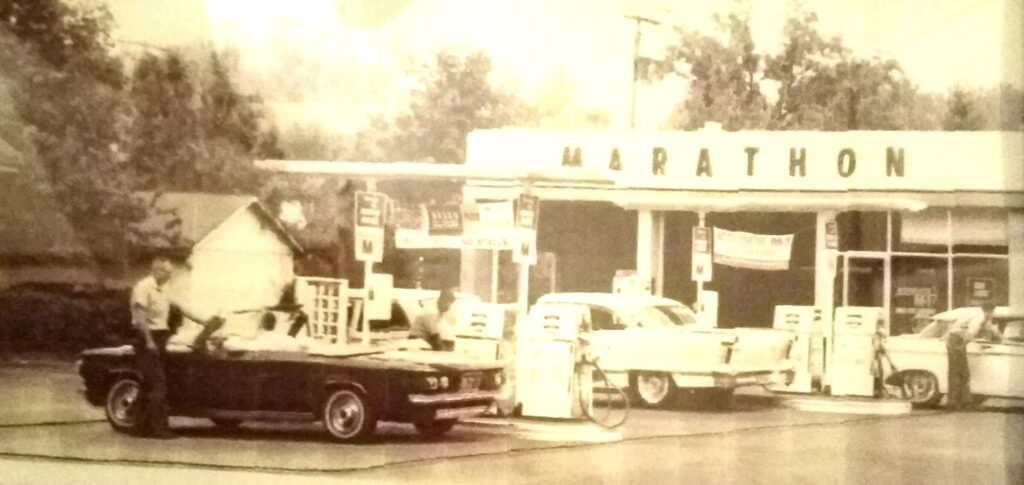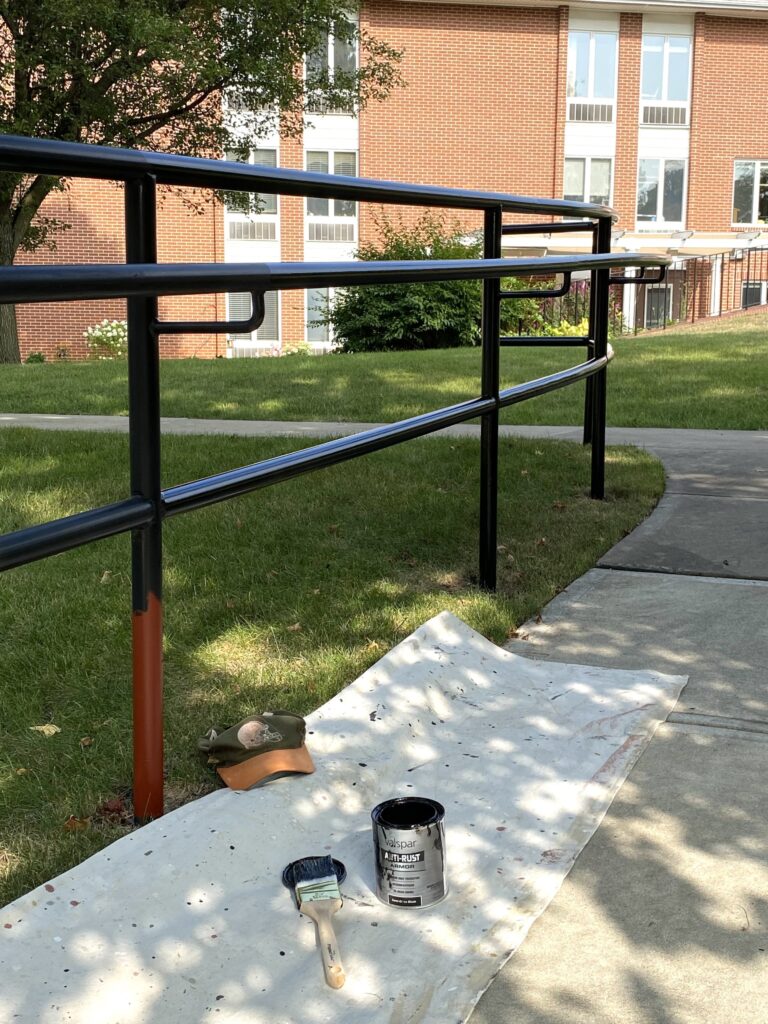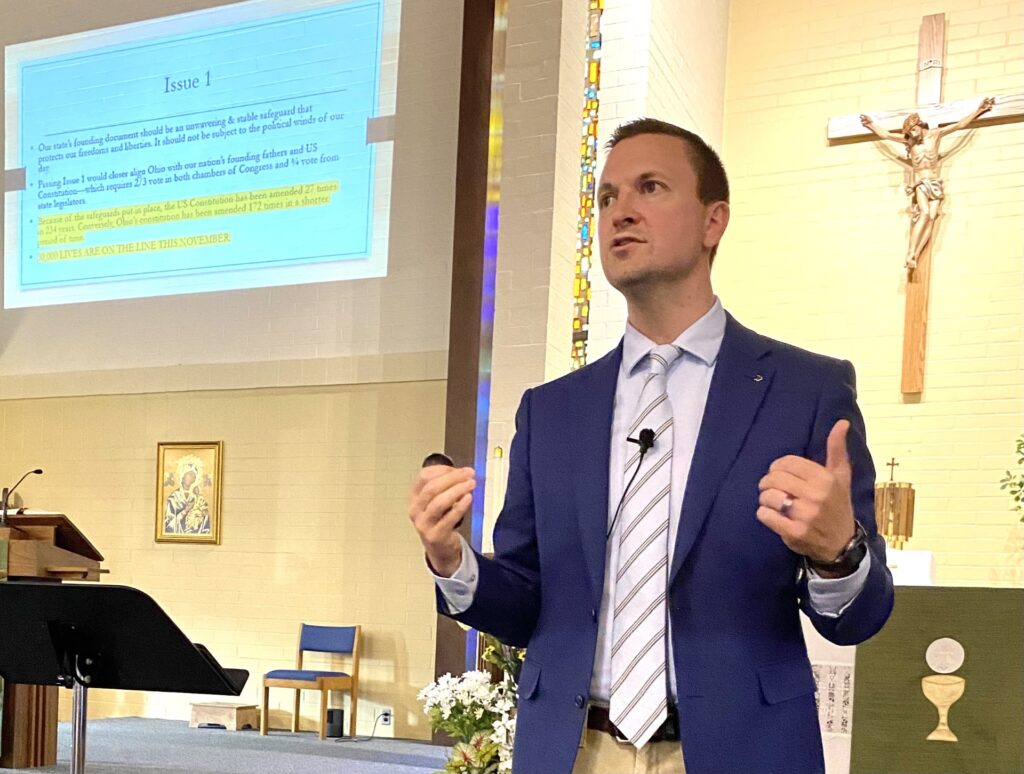
photo by Joe, banner design by Joe, window banner design by Cafe Press…
That’s right, while the other guys (and Nicki) are touring about in Iowa, New Hampshire, South Carolina… in their big, new campaign motorhomes, I designed a magnetic banner (myself), slapped it on my 2005 Equinox, and headed out to… paint a porch on Jackson St. in Bluffton. (Call it a hunch.) And, right again: We’re doing this all without paid political campaign consultants… And when I wasn’t painting this last week, I was writing some articles for two small newspapers in the area. And late at night, I’ve been updating our website. In addition, I’ve been planning some campaign tours to go out into Ohio. While I’ve campaigned extensively all over the country over the years, I will be focusing on just Ohio in the upcoming months. I mean, Ohio’s tourist slogan is: “Ohio: The Heart of It All.” So, I mean, if the polls are showing I’m doing well in ‘The Heart of It All,’ who knows how far that will spread. Have I mentioned I’m doing this without paid political consultants? LOL.

